California and China ZEV alliance: California is forging an alliance with China to move forward on zero emission vehicle technology development, batteries, and sales increases as the U.S. pulls 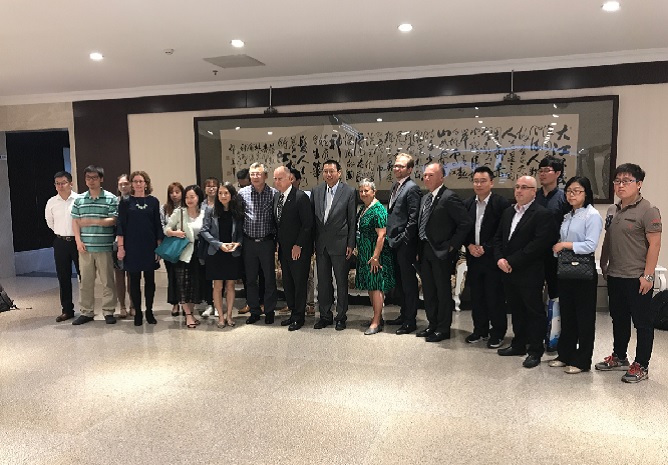 away from the Paris climate change accord. Governor Jerry Brown and California Air Resources Board chair Mary Nichols met with officials from China’s leading automakers and battery manufacturers this week in an effort to expand cooperation and accelerate deployment of zero-emission cars, trucks, and buses. A new working group was formed through the China-US ZEV Policy Lab at UC Davis to expand cooperation with Chinese vehicle and batter makers. The lab comes from a partnership established in 2014 between UC Davis Institute of Transportation Studies and the China Automotive Technology and Research Center. Brown and Nichols have been touring China this week as the nation prepares to adopt the state’s ZEV policy with credits for automakers to purchase and trade for meeting emissions rules.
away from the Paris climate change accord. Governor Jerry Brown and California Air Resources Board chair Mary Nichols met with officials from China’s leading automakers and battery manufacturers this week in an effort to expand cooperation and accelerate deployment of zero-emission cars, trucks, and buses. A new working group was formed through the China-US ZEV Policy Lab at UC Davis to expand cooperation with Chinese vehicle and batter makers. The lab comes from a partnership established in 2014 between UC Davis Institute of Transportation Studies and the China Automotive Technology and Research Center. Brown and Nichols have been touring China this week as the nation prepares to adopt the state’s ZEV policy with credits for automakers to purchase and trade for meeting emissions rules.
Three events to consider attending: Advanced Automotive Battery Conference, June 19-22 in San Francisco. For 17 years, the conference has attracted international thought leaders and battery technologists from major automobile makers and their suppliers to discuss key issues impacting the technology and market of advanced vehicles and the batteries that will power them……… EV Roadmap 10, June 20-21 in Portland, Ore. Founded by Portland General Electric and Portland State University, and now produced by Drive Oregon, the conference has established itself as one of the leading electric vehicle conferences in the United States………… Smart Cities Connect Conference & Expo, June 25-28 in Austin, Texas. Co-located with the US Ignite Application Summit, the conference brings together over 200 cities and their respective leadership to prospect and partner with innovative technology and service providers, linking progressive cities with state-of-the-art solutions and best practices.
Breakthrough in propane technology: Roush CleanTech announced yesterday that it has developed the first propane autogas engine available in class 4-7 vehicles and Blue Bird Type C buses 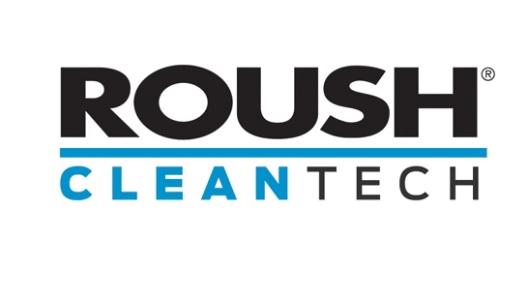 certified to the optional low nitrogen oxide (NOx) level .05 g/bhp-hr. These new U.S. Environmental Protection Agency- and California Air Resources Board-certified propane engines are 75% cleaner than the current emissions standard. “Roush CleanTech’s low NOx engine is a great step forward for the propane industry,” said Tucker Perkins, president of the Propane Education & Research Council. “Propane autogas is well established as an economical, clean-burning and domestically produced alternative fuel ideal for fleets. Now propane gets the biggest return on NOx reductions, too.”
certified to the optional low nitrogen oxide (NOx) level .05 g/bhp-hr. These new U.S. Environmental Protection Agency- and California Air Resources Board-certified propane engines are 75% cleaner than the current emissions standard. “Roush CleanTech’s low NOx engine is a great step forward for the propane industry,” said Tucker Perkins, president of the Propane Education & Research Council. “Propane autogas is well established as an economical, clean-burning and domestically produced alternative fuel ideal for fleets. Now propane gets the biggest return on NOx reductions, too.”

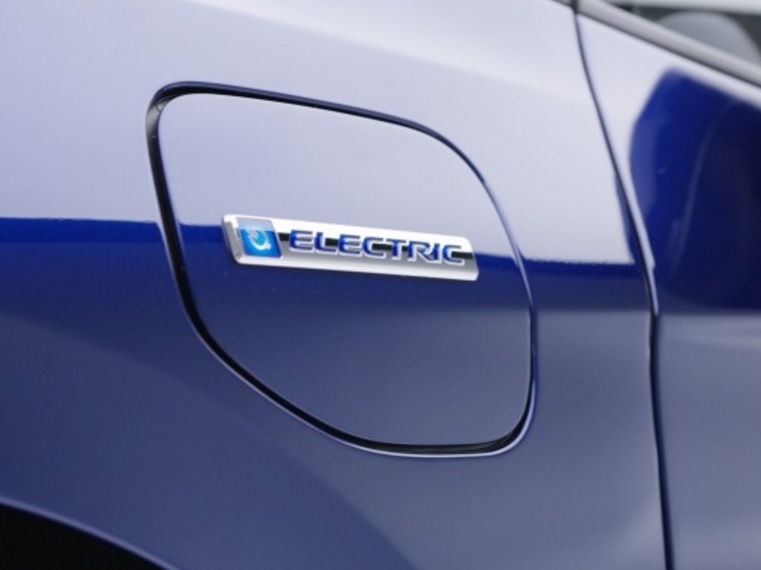 company will release a China-specific electric vehicle in 2018. Another EV made for global markets will be launched this fall at an auto show,
company will release a China-specific electric vehicle in 2018. Another EV made for global markets will be launched this fall at an auto show, 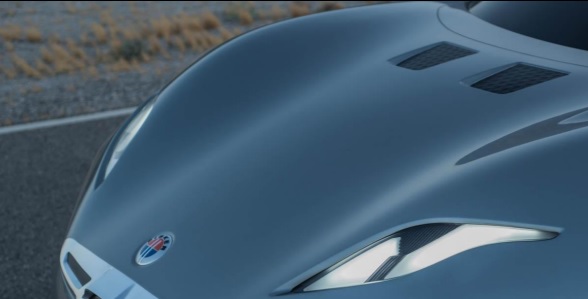 EMotion all-electric sports car. One of the tricks to getting up to the 400-miles per range will be lightening up the car, and it will be safer through patented crash design. The company now has a patent on the Emotion’s frontal crash structure that it says exceeds current minimum standards for occupant protection. The starting price has been set at $129,900 and it will be launched soon, with more details coming out this month.
EMotion all-electric sports car. One of the tricks to getting up to the 400-miles per range will be lightening up the car, and it will be safer through patented crash design. The company now has a patent on the Emotion’s frontal crash structure that it says exceeds current minimum standards for occupant protection. The starting price has been set at $129,900 and it will be launched soon, with more details coming out this month.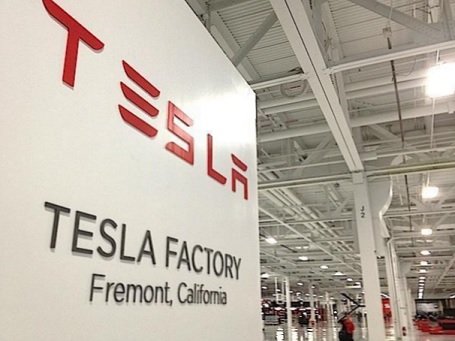 during yesterday’s annual shareholder meeting. The company may need to build at least three and
during yesterday’s annual shareholder meeting. The company may need to build at least three and 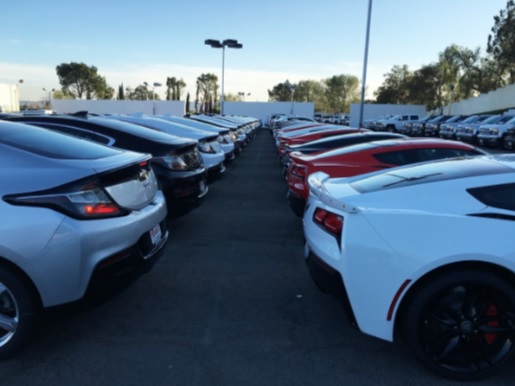 was next to zero just five years earlier; however it’s still just 0.2% of light-duty vehicles, according to the report. Last year saw a surge in sales – 60% more than in 2015, with much of that taking place in China. “China was by far the largest electric car market, accounting for more than 40% of the electric cars sold in the world and more than double the amount sold in the United States,” the IEA wrote in the report. “It is undeniable that the current electric car market uptake is largely influenced by the policy environment.”
was next to zero just five years earlier; however it’s still just 0.2% of light-duty vehicles, according to the report. Last year saw a surge in sales – 60% more than in 2015, with much of that taking place in China. “China was by far the largest electric car market, accounting for more than 40% of the electric cars sold in the world and more than double the amount sold in the United States,” the IEA wrote in the report. “It is undeniable that the current electric car market uptake is largely influenced by the policy environment.”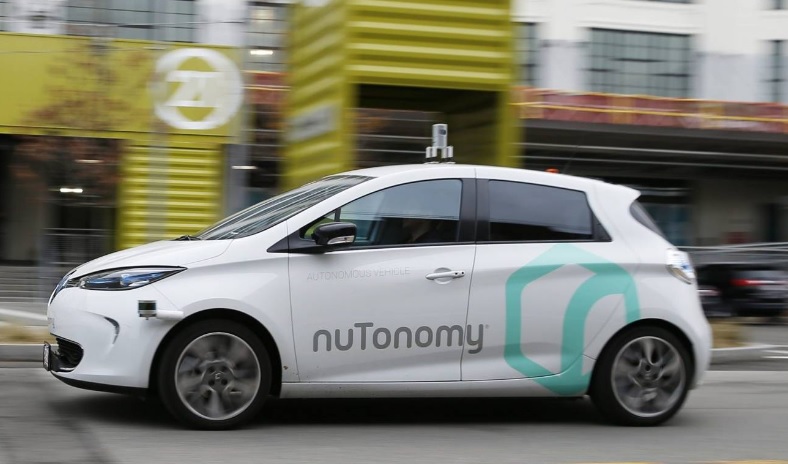 demonstration to begin in the next few months. The study will examine the passenger experience during self-driving rides as the electric cars travel through certain neighborhoods in Boston. Lyft has been forging other alliances in the autonomous vehicle front – including an upcoming project with shareholder General Motors and another one with Waymo. Ride-hailing giant Uber had taken the lead on that front starting last year with a Pittsburgh pilot project that included passengers getting rides; but Uber has distanced itself from Pittsburgh and is focusing on test rides in Arizona.
demonstration to begin in the next few months. The study will examine the passenger experience during self-driving rides as the electric cars travel through certain neighborhoods in Boston. Lyft has been forging other alliances in the autonomous vehicle front – including an upcoming project with shareholder General Motors and another one with Waymo. Ride-hailing giant Uber had taken the lead on that front starting last year with a Pittsburgh pilot project that included passengers getting rides; but Uber has distanced itself from Pittsburgh and is focusing on test rides in Arizona.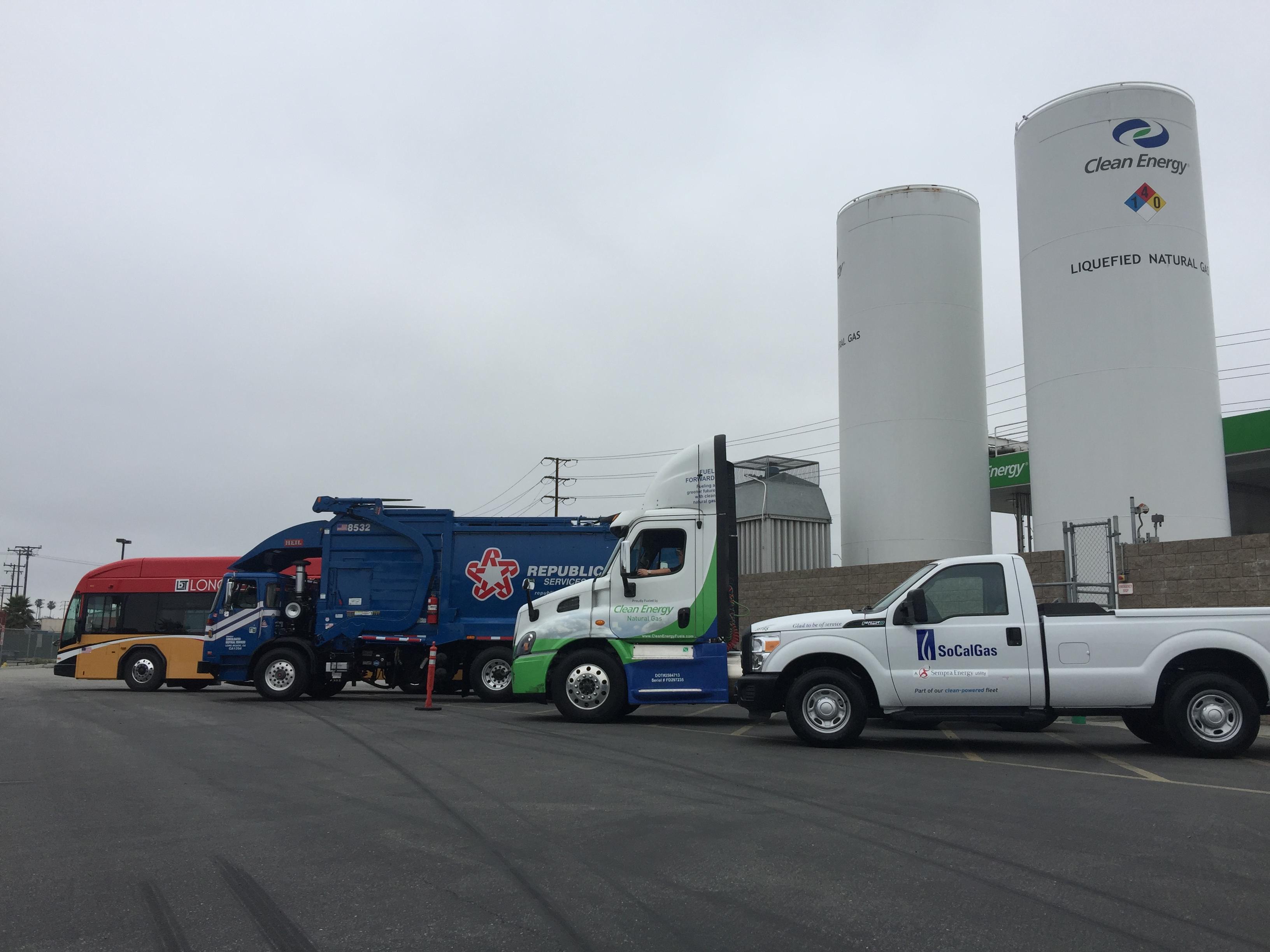 from California to Washington, D.C. The trip was kicked off by representatives from the California Natural Gas Vehicle Coalition (CNGVC), which is calling for the adoption of low nitrous oxide emissions heavy-duty truck technology powered by renewable natural gas in the Clean Air Action Plan of the San Pedro Bay Ports. That, called
from California to Washington, D.C. The trip was kicked off by representatives from the California Natural Gas Vehicle Coalition (CNGVC), which is calling for the adoption of low nitrous oxide emissions heavy-duty truck technology powered by renewable natural gas in the Clean Air Action Plan of the San Pedro Bay Ports. That, called 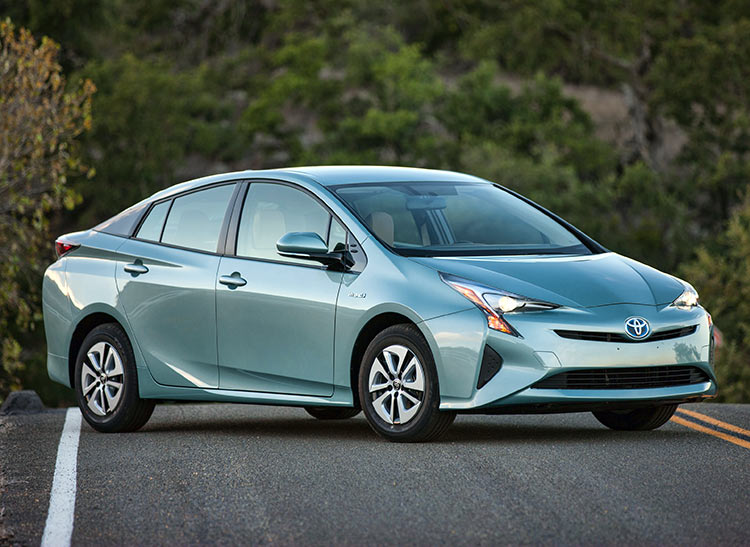 How plug-in sales performed: The Toyota Prius Prime led U.S. plug-in vehicle sales for the second month in a row, beating the Chevy Volt 1,908 units sold over 1,817, respectively. The Volt barely nudged out the Tesla Model X, which came in at an estimated 1,800 units sold last month,
How plug-in sales performed: The Toyota Prius Prime led U.S. plug-in vehicle sales for the second month in a row, beating the Chevy Volt 1,908 units sold over 1,817, respectively. The Volt barely nudged out the Tesla Model X, which came in at an estimated 1,800 units sold last month, 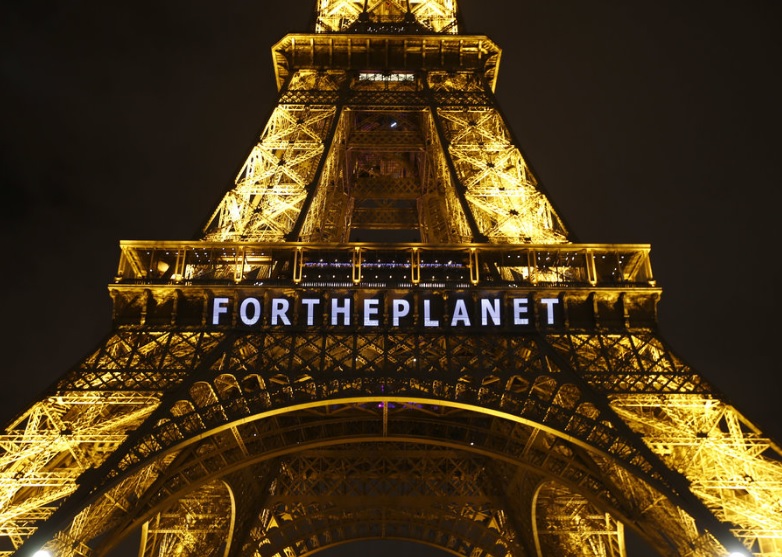 Reactions to Trump on Paris climate accord: Cities, states, and major corporations are staying committed to backing the Paris climate change agreement after President Donald Trump said yesterday that the U.S. will be leaving it. Tesla CEO Elon Musk is stepping down from Trump’s economic advisory panel over it, while Apple, Google, Twitter, Amazon, Facebook, Microsoft, IBM, and other companies have issued statements that climate change is an urgent threat that requires a global effort to combat. As of yesterday, an unnamed group that includes 30 mayors, three governors, more than 80 university presidents, and more than 100 businesses, has gone directly to the U.N. to back the Paris climate accord.
Reactions to Trump on Paris climate accord: Cities, states, and major corporations are staying committed to backing the Paris climate change agreement after President Donald Trump said yesterday that the U.S. will be leaving it. Tesla CEO Elon Musk is stepping down from Trump’s economic advisory panel over it, while Apple, Google, Twitter, Amazon, Facebook, Microsoft, IBM, and other companies have issued statements that climate change is an urgent threat that requires a global effort to combat. As of yesterday, an unnamed group that includes 30 mayors, three governors, more than 80 university presidents, and more than 100 businesses, has gone directly to the U.N. to back the Paris climate accord. 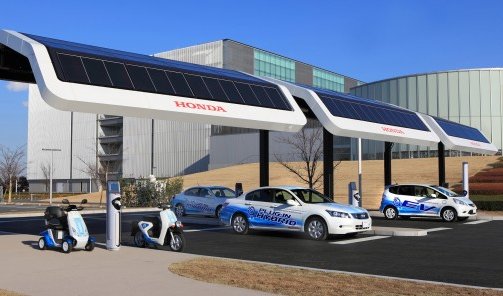 UCS rates PEV energy emissions: The
UCS rates PEV energy emissions: The 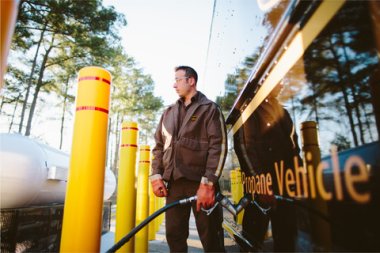 Propane autogas incentive program deadline: Time is running out for fleets to take advantage of the Propane Education & Research Council’s Quick-Connect Nozzle Incentive Program. Private fleets and public refueling stations have until June 30 to apply for the incentive program, which provides $100 per tank-side connector and $1,000 per hose-end connector. The new double incentives of $100 per tank-side connector and $1,000 per hose-end connector were expanded on March 1, 2017, to further help fleet owners replace their current refueling technology. Begin the application process by completing
Propane autogas incentive program deadline: Time is running out for fleets to take advantage of the Propane Education & Research Council’s Quick-Connect Nozzle Incentive Program. Private fleets and public refueling stations have until June 30 to apply for the incentive program, which provides $100 per tank-side connector and $1,000 per hose-end connector. The new double incentives of $100 per tank-side connector and $1,000 per hose-end connector were expanded on March 1, 2017, to further help fleet owners replace their current refueling technology. Begin the application process by completing  Republic Services tripling RNG: Waste disposal company
Republic Services tripling RNG: Waste disposal company 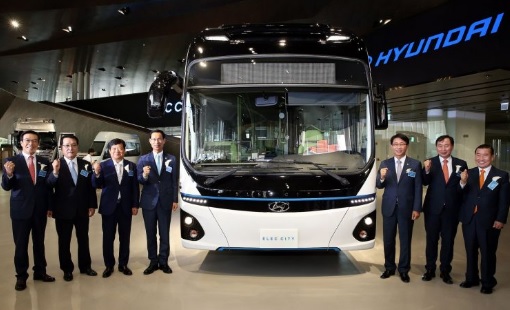 Hyundai electric bus: Hyundai just revealed
Hyundai electric bus: Hyundai just revealed  Canada adopting ZEV policy: Canada will be developing
Canada adopting ZEV policy: Canada will be developing  The
The 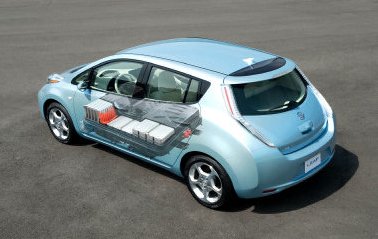 EV battery costs dropping: A new study by
EV battery costs dropping: A new study by 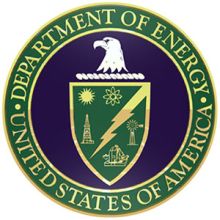 Big cuts in Trump’s DOE budget: The Trump administration is proposing dramatic cuts to the Department of Energy budget for the 2018 fiscal year, which begins October 1. Funding would be cut entirely for the Clean Cities program and the DOE’s Vehicle Technologies Program would see huge cuts.
Big cuts in Trump’s DOE budget: The Trump administration is proposing dramatic cuts to the Department of Energy budget for the 2018 fiscal year, which begins October 1. Funding would be cut entirely for the Clean Cities program and the DOE’s Vehicle Technologies Program would see huge cuts.